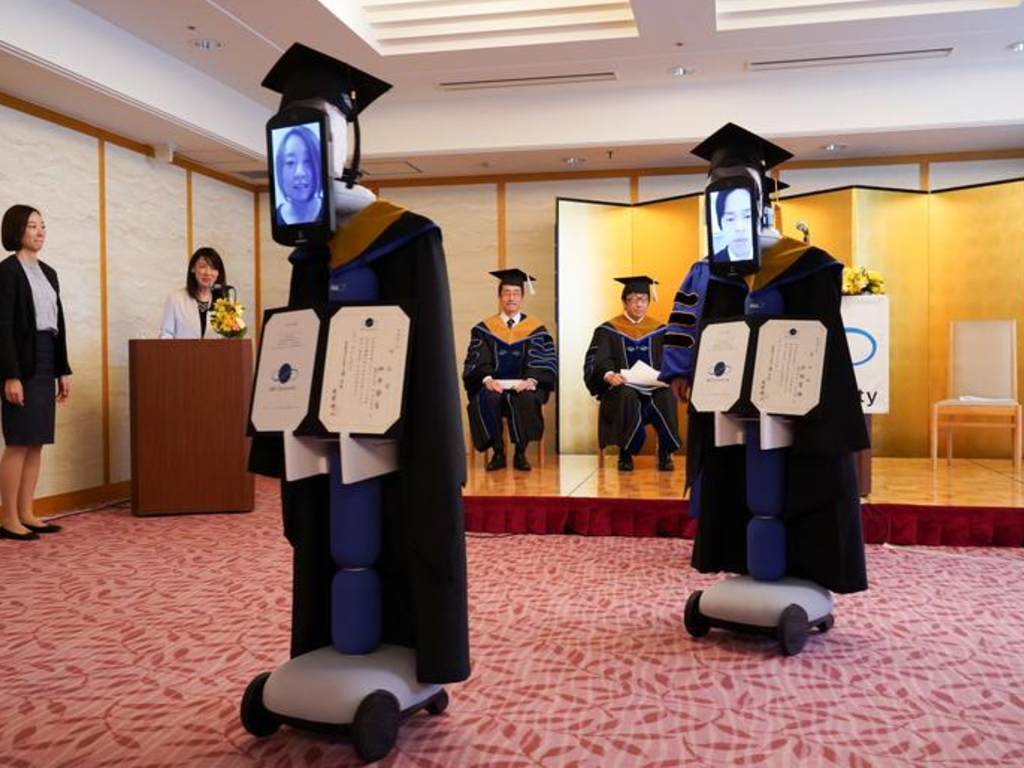As the novel coronavirus pandemic continues to spread, Japanese graduates are making sure not to miss an important milestone.

Students in Tokyo weren’t able to have a traditional graduation ceremony due to virus fears, but Business Breakthrough (BBT) University had a novel idea.
Using Newme robots, also known as avatar robots, graduates were able to use iPads to virtually graduate and “walk” across the stage to receive their diplomas, all from the comfort of their own homes.
Each student had their own tablet attached to one of the robots and used Zoom to remotely participate in the ceremony via conference call, which took place at Hotel Grand Palace on March 28, Business Insider reported.
The robots were dressed in the classic cap and gown to make the experience even more authentic.
“When I enrolled, I never thought I would operate my avatar and attend the graduation ceremony,” an anonymous graduate said in the school’s statement.
“However, receiving a diploma in public is a novel experience.”

They were even able to pose with the university’s president for photos on their big day, all thanks to some technology and innovation.
Last month, a group of elementary students organized their own graduation ceremony using the popular game Minecraft, Business Insider reported.
The customizable avatars, created by ANA Group, are also being used for museum visits and other outings that have been limited because of the COVID-19 outbreak.
Aside from allowing people to see the world without leaving their homes, the Newme avatars have also been used to give people with paralysis the ability to go back to work as robot waiters in cafes, CNET reported in 2018.
—
Questions about COVID-19? Here are some things you need to know:
Health officials caution against all international travel. Returning travellers are legally obligated to self-isolate for 14 days, beginning March 26, in case they develop symptoms and to prevent spreading the virus to others. Some provinces and territories have also implemented additional recommendations or enforcement measures to ensure those returning to the area self-isolate.

Symptoms can include fever, cough and difficulty breathing — very similar to a cold or flu. Some people can develop a more severe illness. People most at risk of this include older adults and people with severe chronic medical conditions like heart, lung or kidney disease. If you develop symptoms, contact public health authorities.
To prevent the virus from spreading, experts recommend frequent handwashing and coughing into your sleeve. They also recommend minimizing contact with others, staying home as much as possible and maintaining a distance of two metres from other people if you go out.
For full COVID-19 coverage from Global News, click here.
—





Comments